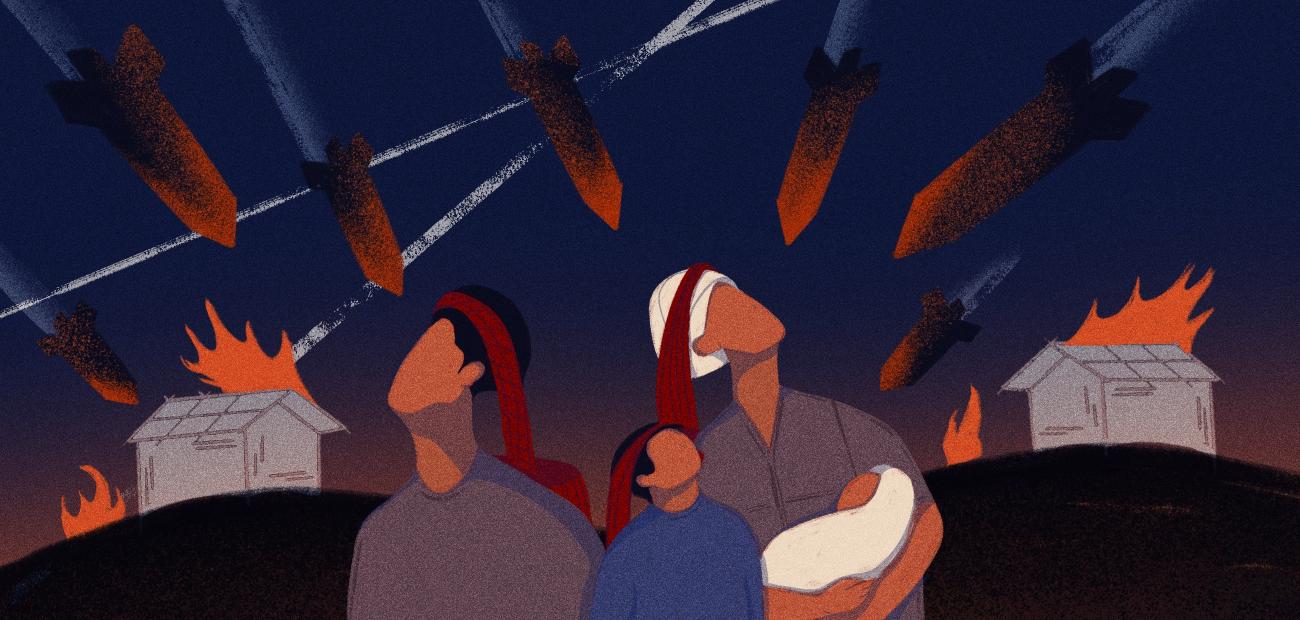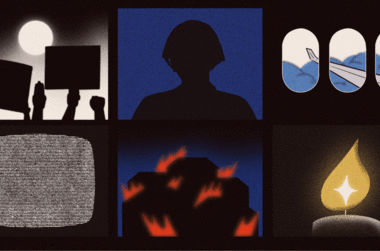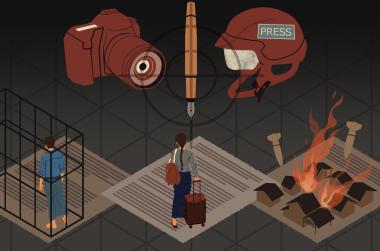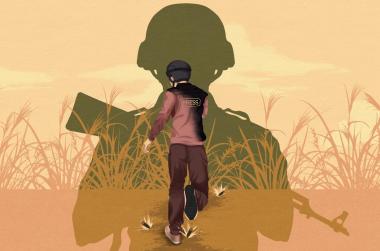The author is a Kayah journalist who is receiving support from The Kite Tales to write these diaries.
It was getting late, but I could hear the footsteps of the couple and their children as they went up and down from the bedroom upstairs and loaded their belongings onto the truck.
“Where are they planning to run to?” I wondered. It had only been a day since my family arrived at this house. We came here because of the fierce fighting near our home in Demoso Township, of Kayah State.
Are they fleeing now too and leaving us?
Finally I went to ask: "Where are you going?"
"Don't worry, we are just moving our belongings," the husband told me.
He and his two sons finished packing up the truck with rice and other items from their home and drove into the forest.
I could see the whole village was up and about. The wife was still at home with her daughter, so we could talk. She was packing household items.
"What should we do?" I asked.
"I think we have to go to into the countryside,” she said.
“If the soldiers reach here and we cannot run fast enough, we will die.”
So I started packing my bags too and made sure the children were dressed in warm clothes and ready to move quickly when the time came.
It looked like we would have to flee again.
After a while, the husband returned to pick up his wife and daughter. We said our family did not dare stay behind, since all the villagers were leaving. So we would follow them into the bush. We left in the early hours of the morning.
The whole village was on the move, on motorbikes, bicycles, cattle carts, farm trucks and cars. Some went to their farmland. Others headed to the forest, hills and caves. Everyone fled overnight. The village echoed with the cries of children, and engine growls.
The road was thronged with people. Some were transporting goods and others were heading the other way, returning to get their families. If you didn’t know we were running for their lives, you might think we were having a pagoda festival.
At that time, there was heavy fighting between the military junta and the People's Defense Forces around Loi Lin Lay, a small town outside Kayah’s capital Loikaw. We were not very close to the clashes, but all the nearby villages fled into the backwoods that night all the same.
We decided to camp on a rocky outcrop in a field. There were no big trees for shelter and we lay down under the glittering stars in the clear sky.
The children couldn’t sleep because of the sound of artillery shelling in the distance. Each explosion shook the ground below us and sent shockwaves through our bodies. The tremors made the children cry. Sounds of their sobs filled the air. Carrying them on our backs, we walked to and fro and lied to them about the artillery fire. It was “thunder” we said and “there is heavy rain far away”.
As the sun rose, so did the other families. More than I could count. Families like ours, clutching their children and their belongings, huddled next to the rocky outcrops.
I also saw many cars hidden in this remote area. People were fearful that they would be burnt and destroyed if the army entered the village. They dared not leave their valuables at home.
My husband looked for pieces of bamboo and wood, chopped them and made shelters. They were neither rain-proof nor wind-proof, but we all lived next to each other in this place.
Water was not easily available so we had to be careful how we used it. The water levels in the old canals nearby were too low for us to reach. It took me about an hour of walking to fetch some water at a knee-length pool. We couldn’t shower and almost all the children suffer from itchy heat rash or bumps caused by insect bites.
When we ran out of food to eat, the host husband and wife had to go back to the village to fetch food and supplies if it was safe.
Some people went back to the village to dig bomb shelters. Youths took turns guarding the village. Everyone had to abandon their careers, livelihoods and farms to focus on their safety.
And we had to run like them.
When the fighting calmed down, we moved back to the village. But when we again heard artillery fire, we fled back to the countryside. While moving between places, we had to find shelter when the rain came. I remember trying to sleep sitting with my children on my lap. There were many sleepless nights.
There are now tens of thousands of war refugees in Kayah State who have been living in the bush for a long time.
According to the Karenni Human Rights Group, more than 170,000 people have been displaced by the fighting, which began on May 21, 2021 in Demoso.
The military junta has been shelling refugee camps with heavy artillery, and many are now fleeing for their lives again. When will refugees be able to sleep safely in their homes again, together with their families? I don’t know.
Illustration by JC.





